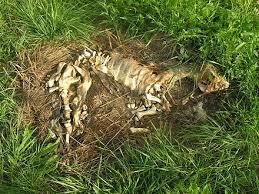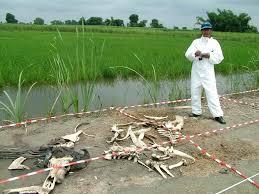All planetary life forms anywhere throughout the universe have an expiration date. 
On Earth, the mass production of humans with their built-in obsolescence is no exception, which, akin to our manmade consumer products, the people have a shelf-life of their own. It’s a good thing too. The human population cupboard is full, and, in fact, bursting at the seams.
As a society, the human collective can expect two expiration dates. One is on the daily road of sustainability where individual humans become extinct (aka death). The other is when humans taken as a whole are no longer sustainable on this planet causing the extinction of the species.
Having only brief custody of their bodies doesn’t sit well with thinking humans. Nevertheless, our temporary condition is the only one we have and the only one that matters. The inevitability of human death, unlike most of our cousin animals, weighs heavily on our minds. As deplorable as it is, death has also become a prime mover in our daily diet of information and entertainment.
So if humans are so preoccupied with death, what really happens when we die?
Dr. Judy Melnek, a practicing forensic pathologist in San Francisco says, “The first thing that happens when you die is that your heart stops beating and blood flow ceases. Blood then pools in the parts of your body closest to the ground, a process called lividity. Because there is no more blood flow, oxygen-starved tissues stop all metabolic function. Your eyes cloud over and muscle fibers lock up in rigor mortis. Your body temperature goes down to match the ambient temperature. Eventually, bacteria from the gut and upper respiratory tract enter your bloodstream and cause putrefaction, while your body’s cellular enzymes digest its cells, a process called autolysis. All these processes take time and can be roughly relied upon to estimate the time of death, but not down to the minute as they portray on TV.”
A dead body left unattended becomes a toxic site. The decaying elements are dangerous to living organisms.  If a fox dies in a meadow, its decomposing body will create a decomposition field that kills and destroys the surrounding grasses in a pattern around its corpse. Before 1981 no facilities existed to study the effects and processes decomposition. That year, anthropologist William Bass opened the first facility to study human remains.
If a fox dies in a meadow, its decomposing body will create a decomposition field that kills and destroys the surrounding grasses in a pattern around its corpse. Before 1981 no facilities existed to study the effects and processes decomposition. That year, anthropologist William Bass opened the first facility to study human remains.
From then until 2015 the United States was the only country to have human decomposition research laboratories (one opened recently in Sydney, Australia). More generally known as ‘Body Farms’ these facilities study “decomposition rates for human remains under various topographical and climate conditions.” Body farm research studies “has applications in the fields of law enforcement and forensic science. Six such facilities exist in the United States.” One facility is used for “cadaver dog training.”
Bodies typically are donated by family members or preregistered before death by people willing to support decomposition research or by medical examiners.
The vulture research program is particularly interesting. Originally, the vultures disrupted the research but the facility formed a “new area of study on the effect of vulture scavenging on human decomposition.” Any volunteers for the vulture program?



Tuesdays with Memento Mori
The Vulture Program has a certain Promethean appeal. But a big difference is those mythic Greek scavengers fed on the liver of a living person. And in true Spite-of-the-Gods form, his most vital organ grew back afresh each night after the vultures had their fill of it. I guess in some respects being dead has its advantages.
Becoming vulture food doesn’t seem that much worse than being a worm banquet, or industrially incinerated. None of the recycling options are all that enticing. Even being eaten by a zombie Marilyn Monroe doesn’t thrill me that much.
As disposal methods go, the Viking burning pyre at sea always seemed coolest to me, but now with adventure travel so over the top, and an array of coastal threats looming large, this strikes me as indulgently passé. I better quit this comment now before curbside compost comes into the picture.
"I better quit this comment..."
“I better quit this comment now before curbside compost comes into the picture.”
lol ! This whole comment is brilliant and funny. It nicely complements Vidda’s article.
The right to suicide
Curbside compost? That is funny.
A sidebar of this topic is how we die. The most liberal of suicide laws are found in Switzerland. There, legal suicide assistance is available to the Swiss, but also foreigners. Suicide pacts are also acceptable. People have the right to die “under circumstances of their own choosing” and painlessly with little drama. Even people who are not terminally or chronically ill can chose to die if they are “weary of life.”
For supporters of the right to suicide the Swiss offer rational, nonviolent assistance without all of the brutal methods people in the United States must use.
A few "what happens"
I’ve heard a number explanations for what happens next when we die:
– judgement, then heaven or hell
– out go the lights
– reincarnation
– rising up out of body and looking down on those around
– the light at the end of the tunnel
– reuniting with lost relatives and pets
– becoming a ghost
– becoming a hungry ghost (not good)
– going to another, better planet/place
Another relevant thought on death: it comes at the end because we save the best for last.
I liked Steve Jobs final words. Something along the lines of “Oh wow, oh, wow, oh wow.”
"This is no way to live!"
If one goes with the thought that death is the biggest part of life it’s a damn shame that profoundly sentient creatures like us can’t have more than decomposition to look forward to. To become maggot or vulture poop is not the most glamorous of endings, or should I say new beginnings. As Groucho Marx said just before he died, “This is no way to live!”
Not the biggest
but the best.
Why is dying our last act? – Because we save the best for last.
“Oh wow.”
I’ve been interested in last words (and transcripts of crashing planes) for a long time.
There is something fascinating about that final moment – not before, and not after. I suppose I’ll know if it is true later on. : )
At the edge
At The Future Fest, more than one performer Sunday night spoke and sang about losing friends, and others.
One, Arts and Sciences, spoke of how hard it was to be alive when these close people were no longer around.
It is hard. Especially if you lose a few people in quick succession.
She announced that she, too, has been to the edge of death, and reported that it had been quite wonderful. I thought it would be good to let others know that, at least in one case, someone who has died for a moment said it was OK.
Flat Line - Dying versus Death
The facts are:
When you’re dead – you’re dead.
When you’re dying – you’re alive.
Death itself is not actually organ failure. Organ failure is a prelude to death, like when a person’s heart stops. Medics have only minutes (or less) to revive a heart that flat-lines. In that period they are “dying.”
People who “die” for a moment or few minutes are not medically dead. Unless their brain has ceased activity (brain dead) or sustained a “flat-line” brain for several minutes they are alive.
The brain remains very active during organ failure or other dying moments, both conscious and/or unconscious.